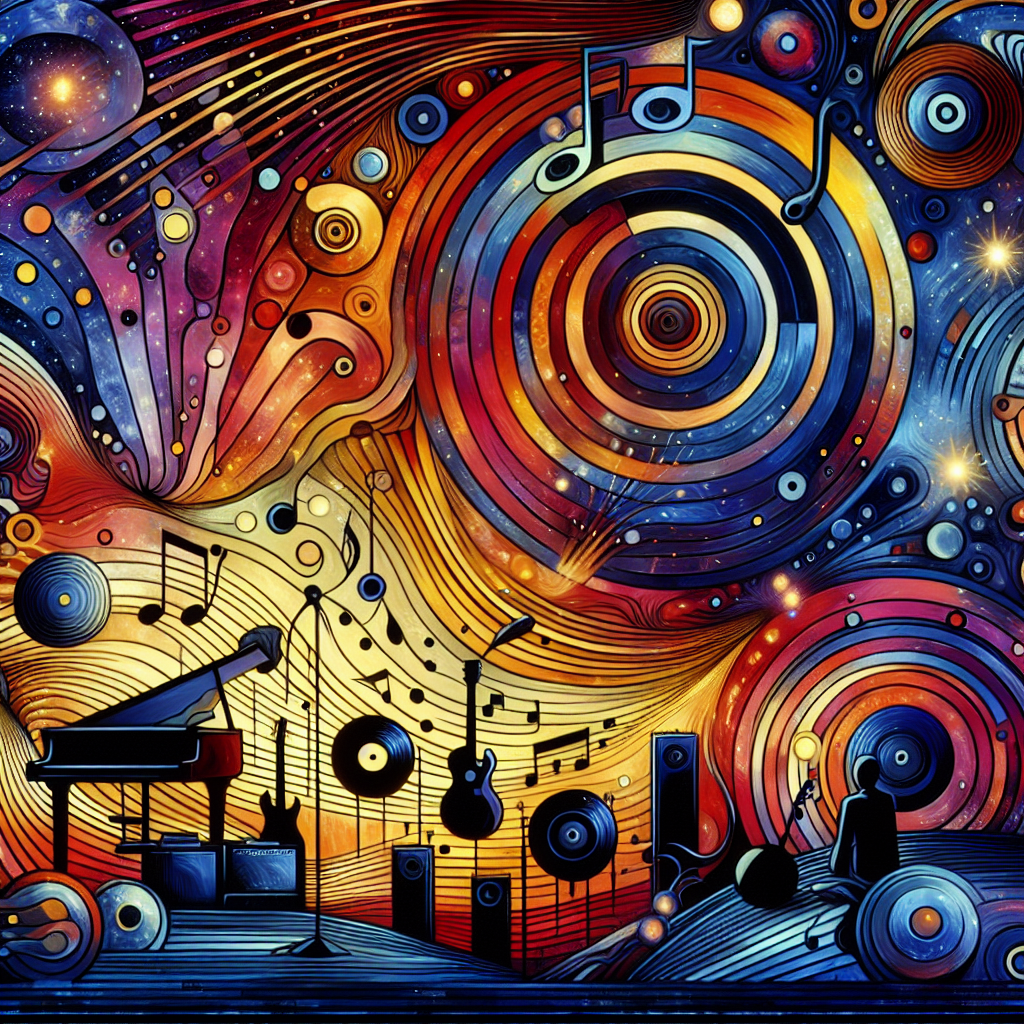Experience David Bowie’s Timeless Classic: Song ‘Changes’ – A Deep Dive into the Iconic Track
When discussing the seismic impact of David Bowie’s extensive and chameleonic career, one song that irrefutably stands out is "Changes." This track, which first graced the airwaves in 1971 on Bowie’s landmark album "Hunky Dory," transcends its immediate context to become an anthem of both personal and cultural metamorphosis. As with much of Bowie’s work, both lyrically and musically, "Changes" serves as both a reflection of its time and a timeless call to embrace transformation.
The Artist and Context
David Bowie, whose artistry defied categorization, emerged in a period marked by rapid social and cultural shifts. The early 1970s was a fertile ground for innovation in rock and pop music, characterized by its break from the styles and norms of the preceding decade. "Hunky Dory," Bowie’s fourth studio album, marked a pivotal moment in his career, showcasing his evolving songwriting prowess and his acute ability to channel the zeitgeist. Within this context, "Changes" stands as a linchpin of the album—a manifesto of Bowie’s own ethos and a harbinger of his continuous reinvention.
Themes and Lyrical Content
The most striking thematic element of "Changes" is its exploration of transformation. The very title suggests a preoccupation with the inevitability of change, a recurring theme throughout Bowie’s oeuvre. The chorus, famously punctuated by the stuttered “Ch-ch-ch-ch-changes,” underscores the tension and excitement inherent in transformation. Here, Bowie confronts the oscillating nature of identity and societal expectations, reflecting his own journey as an artist who would continually reinvent himself.
Lines such as "And these children that you spit on / As they try to change their worlds" highlight the generational conflict emblematic of the early ’70s. This era saw young people striving to carve out new cultural spaces, rebelling against the rigidity of preceding norms. Bowie captures this transitional moment with incisive lyrics that spotlight individual courage and generational consciousness.
Musical Techniques
Musically, "Changes" is a quintessential example of Bowie’s ability to blend genres and sounds, resulting in something entirely unique. The piano-driven melody, performed by legendary keyboardist Rick Wakeman, provides a reflective, almost wistful quality to the song. Wakeman’s melodic choices add layers of nuance, giving the track an emotional depth that complements Bowie’s introspective lyrics.
Harmonically, the song defies the straightforward progressions typical of mainstream rock at the time, reflecting another layer of complexity and transformation. The use of unexpected chord changes and modulations can be seen as a metaphor for the thematic content—the unpredictability of change itself. The arrangement, featuring a brass section that punctuates key moments, lends the track both a jazz-inflected feel and a theatrical grandeur befitting Bowie’s style.
Cultural, Social, and Historical Context
"Changes" resonates deeply within the cultural and social upheavals of its time. The early 1970s followed a tumultuous decade of political protests, civil rights battles, and significant shifts in social mores. Bowie’s song reflects this landscape, encapsulating the zeitgeist of a society in flux.
Moreover, Bowie’s own fluid identity—frequently challenging gender norms and adopting various personas—mirrors the broader cultural explorations of identity during this period. "Changes" can thus be read as both a personal statement and a broader societal critique, capturing the spirit of an age where boundaries were continually being redrawn.
Legacy and Influence
The legacy of "Changes" in the music industry and popular culture is indelible. Its message of transformation and resilience has seen it adopted as an anthem by various movements and has inspired countless artists across genres. The song’s lasting appeal lies in its universal theme and the authenticity of Bowie’s performance.
More than just a hit song, "Changes" became a core part of Bowie’s mythos, continually relevant through his career and beyond. It has been covered by numerous artists, featured in films, television shows, and commercials, speaking to its broad and lasting appeal.
Reflective Questions and Takeaways
In contemplating the ongoing relevance of "Changes," several reflective questions arise:
- How do the themes of "Changes" resonate with contemporary societal shifts and personal transformations in today’s world?
- In what ways can Bowie’s embrace of continual reinvention inspire individuals in various fields to embrace change rather than resist it?
- How might "Changes" be reinterpreted in future cultural and musical contexts?
Ultimately, "Changes" is more than just a song; it is an enduring message of resilience, adaptability, and the beauty inherent in transformation. Its relevance today is undeniable, inviting us to embrace the inevitable flux in life with the same courage and artistry that Bowie displayed throughout his storied career.
Got more questions? Our personalized Music Explorer AI assistant is here to help. Click here to start a conversation!
[Advertisement]
Curious about the deeper messages in your favorite songs? Discover how ANY track relates to positive biblical principles with Music and Scripture GPT from BGodInspired.com. Click here to uncover insights you might not have noticed!
[Advertisement]

